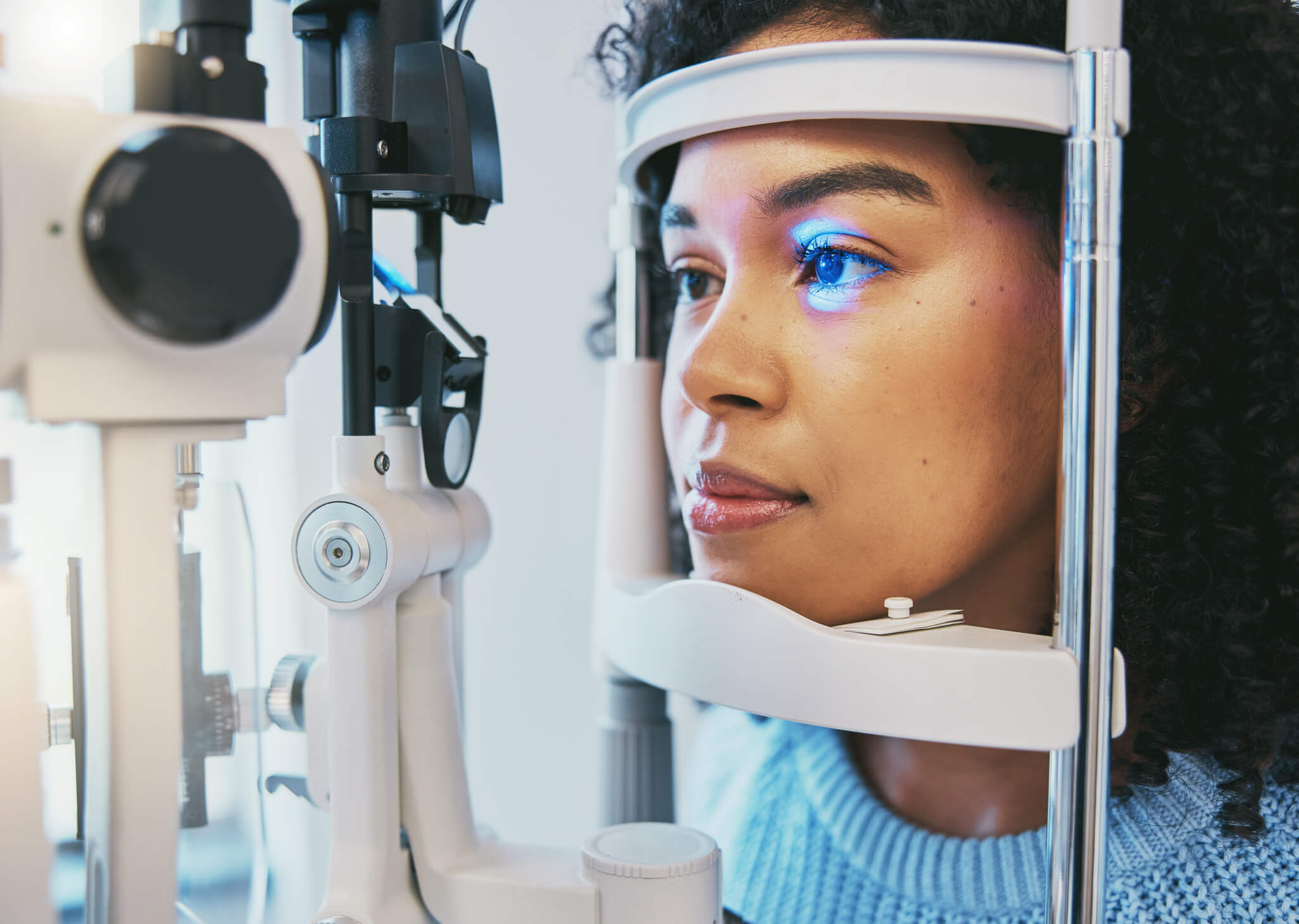Visual impairment can significantly impact a person’s daily life and ability to work. If you’re struggling with vision problems, you may be eligible for Social Security Disability Insurance (SSDI) or Supplemental Security Income (SSI) benefits. This guide will help you understand visual impairment, its impact on daily life, and how to navigate the process of obtaining disability benefits.
Understanding Visual Impairment
Visual impairment refers to a decreased ability to see that can’t be corrected with standard glasses or contact lenses. It ranges from partial sight to complete blindness. Common causes include macular degeneration, glaucoma, diabetic retinopathy, cataracts, and retinitis pigmentosa.
Each condition affects vision differently, but all can severely impact a person’s ability to perform daily tasks and maintain employment. Visual impairment can affect reading and writing, driving, recognizing people and things, and performing your job and hobbies. These challenges can lead to reduced independence, difficulty maintaining employment, and potential social isolation.
Qualifying for Disability Benefits
Qualifying for disability benefits due to visual impairment involves a complex evaluation process by the Social Security Administration (SSA). To qualify for disability benefits due to impaired vision, the SSA must determine whether your visual condition is severe enough to prevent you from engaging in substantial gainful activity. Eligibility for these benefits goes beyond having poor eyesight. It requires a thorough examination of how your visual impairment affects your ability to perform work-related tasks and daily activities.
The SSA uses specific medical criteria outlined in its Blue Book to evaluate visual disorders. However, they also consider how your condition impacts your overall ability to function in a work environment. This holistic approach takes into account not only the measurable aspects of your vision but also how your impairment interacts with other factors such as your age, education, work history, and any additional health conditions you may have.
Understanding these key factors can help you better prepare your claim and increase your chances of approval. These include:
- Visual acuity: The sharpness of your vision when looking at objects
- Visual field: The entire area you can see without moving your eyes
To qualify for disability benefits based on visual acuity, your better eye must have a corrected visual acuity of 20/200 or worse. For visual field impairment, you must have a visual field of 20 degrees or less in your better eye.
If your condition doesn’t meet these exact criteria, you may still qualify through a medical-vocational allowance if your vision problems, combined with other factors, prevent you from working.
Applying for SSDI or SSI Benefits
The application process for disability benefits can be complex and time-consuming. Here are the basic steps:
Initial Application: Submit your application online, by phone, or in person at your local Social Security office.
Provide Medical Evidence: This includes detailed records from your eye doctor, results of vision tests, and information about treatments you’ve undergone.
Work History: Provide a comprehensive work history, explaining how your visual impairment affects your ability to perform job duties.
Wait for a Decision: The SSA will review your application and medical evidence. This process typically takes three to five months.
Appeal if Necessary: If your initial application is denied, you have the right to appeal. This process has multiple levels, including:
- Reconsideration
- Hearing before an Administrative Law Judge
- Appeals Council Review
- Federal Court Review
How Disability Advocates Group Can Help
At the Disability Advocates Group, we understand the challenges faced by individuals with visual impairments. Our experienced attorneys handle disability claims and are committed to helping you obtain the benefits you deserve. We offer:
- Free initial consultation
- Comprehensive representation
- Medical evidence gathering
- Application preparation and submission
- Hearing preparation
- Contingency fee agreement
Contact the Disability Advocates Group to Discuss Your Disability Claim
Visual impairment can significantly impact your life, but you don’t have to face these challenges alone. If your vision problems are preventing you from working, you may be eligible for SSDI or SSI benefits. The process of obtaining these benefits can be complex, but with the right support, you don’t need to be apprehensive about applying for benefits.
At the Disability Advocates Group, we’re committed to helping individuals with visual impairments in Los Angeles, and surrounding areas secure the benefits they need and deserve. Our experienced attorneys understand the nuances of disability law and will fight tirelessly on your behalf. Contact us today for a free consultation to discuss your case and your options.

